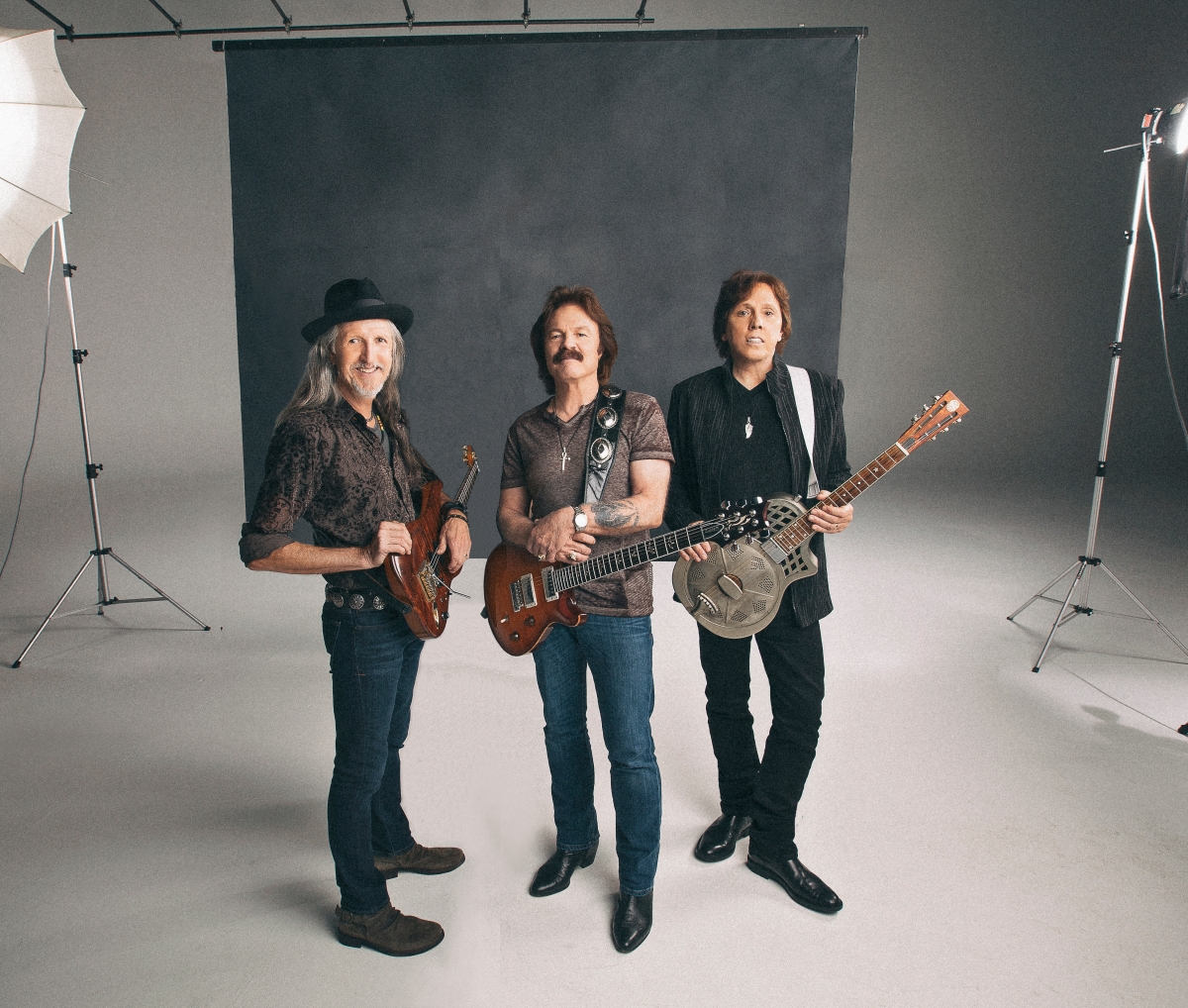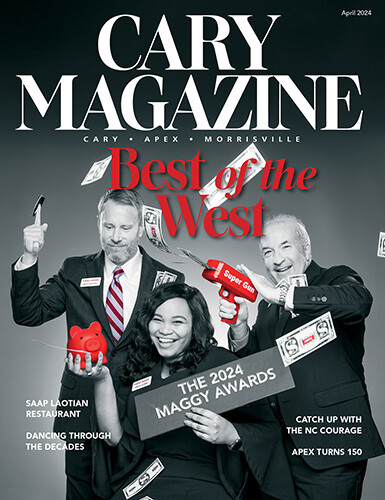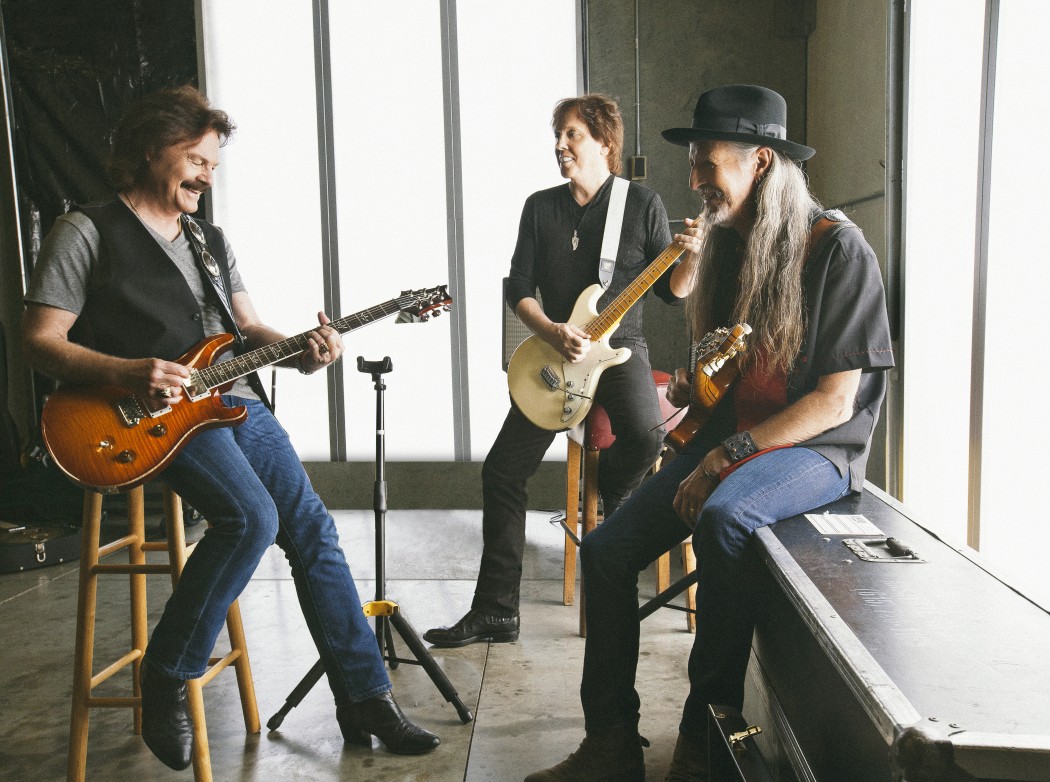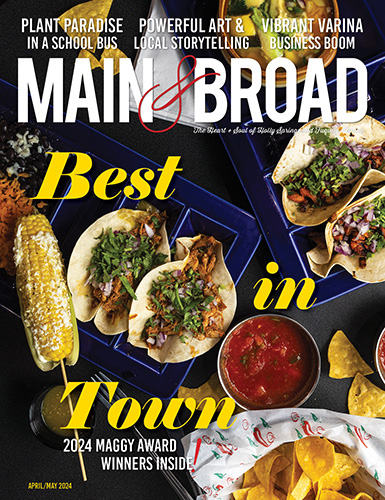Forty-eight million albums, four Grammy Awards and 40-plus years of musical success with one of the most loyal fan bases in history: That’s The Doobie Brothers.
Cary Magazine had the chance to chat with Patrick Simmons, who founded the band in 1969 with Tom Johnston, on what’s new with The Doobies as they head our way for a Sept. 1 concert at Booth Amphitheatre.
Simmons spoke to us from his home on the island of Maui, where he’s known to perform benefit gigs with his musician son, Pat Jr., and his Maui neighbor and former Doobie Michael McDonald.

The Doobie Brothers, from left, Patrick Simmons, Tom Johnston and John McFee, will perform in Cary on Sept. 1.
CM: Your latest album, Southbound, was released last fall, featuring collaborations with top country artists like Blake Shelton, Zac Brown Band and Toby Keith, on many of The Doobie Brothers’ biggest career hits, and reunites the band with Michael McDonald. What’s significant to you about this concert tour?
Patrick Simmons: What’s cool and important here is that we haven’t done an album in a while. This was an incredible opportunity to work with all these great artists; we’re humbled by their sheer talent.
Country fans are also checking us out on this tour. We’ve always had some country roots, but not in an overt way. Having the album out highlights the various parts of our musical backgrounds. We’re also pulling out some deep cuts that are country based; crowds are really responding to that, and more of the younger folks are into country these days.
We had a wonderful producer for Southbound, David Huff of Nashville, who contracted all of the artists and coordinated the recording, engineering and backup musicians. We’re writing new music to record this winter, and have asked David to work with us on that project. I’m excited about it.
CM: When you’ve done as many shows as The Doobie Brothers have, how do you keep performances interesting and exciting?
PS: We make the effort to pull songs people don’t expect us to play; that allows us to rediscover ourselves a bit, and those moments make it more fun for us. That being said, the old hits are what connect us to the audience. I never get tired of playing those.
CM: Your son, Pat Jr., and Tom’s daughter Lara are joining you on several of these tour dates. What’s it like working alongside the next generation?
PS: The kids grew up on the road, and it’s always been a wonderful experience having them come out and sing along with us. Now they’re doing their own music, which is rewarding for us as parents, and they’re getting great response. (Note: Lara Johnston will appear at the Sept. 1 concert in Cary.)
CM: You wrote Black Water, the band’s first No. 1 song, back in 1974, and re-recorded it for the first time with the Zac Brown Band on Southbound. Tell us about that song.
PS: Black Water is an off-the-wall song that was just meant to be an album cut. We were playing clubs in New Orleans and I was trying to write it, had the riff and knew the tune would have a blues-Southern influence. Sure enough, feeling the vibe there, the song is about my experience, taking the streetcar to St. Charles Avenue to do my laundry. It rains in New Orleans while the sun shines, and it’s hotter than hell; all this is reflected in the lyrics: 'If it rains I don’t care … just take that streetcar that’s goin’ uptown.' I added a little Mark Twain-Mississippi at the beginning, 'Well, I built me a raft and it’s ready for floatin.’ Simple experiences can motivate lyrical ideas.
Recording it with Zac Brown Band, well, they’re the right band to do that song. Like us, they’re multi-instrumental and the vocals are a huge part of what they do. It fit together well.
CM: You, Tom Johnston and John McFee have worked together for a long time. How do those long-term relationships impact the music you’re making now?
PS: We’ve always put our best efforts into each other’s songs. It’s a huge bonus to have that support from your bandmates. You might have ideas in your head, but until the others play and sing the parts, it doesn’t gel.
We’re like siblings. We don’t always agree, but that balance is part of the band. Being able to talk it out and compromise has made us that much stronger.
CM: Look at your stats — 48 million albums, seven multi-platinum, four Grammy Awards, even a rare RIAA Diamond record, and recipient of the Voice of Music Award this past April — how do you explain such success and longevity?
PS: At the start, our dream was to make songs the audience would remember. We hoped we’d get one hit record. Now, when you have a repertoire that encompasses a large number of songs that are in the public consciousness, that’s a huge gift.
I’m not sure there’s an explanation for longevity. A lot of it is luck. There are thousands of great musicians out there and sometimes I scratch my head wondering why they’re not making it big. We hit the right chord with an audience, they became fans and it snowballs. That’s how it happens.
In Concert: The Doobie Brothers, with Gregg Allman
Tuesday, Sept. 1 at 7 p.m.
Booth Amphitheatre, Cary
Tickets available at boothamphitheatre.com.
For more on The Doobie Brothers, see doobiebros.com.






